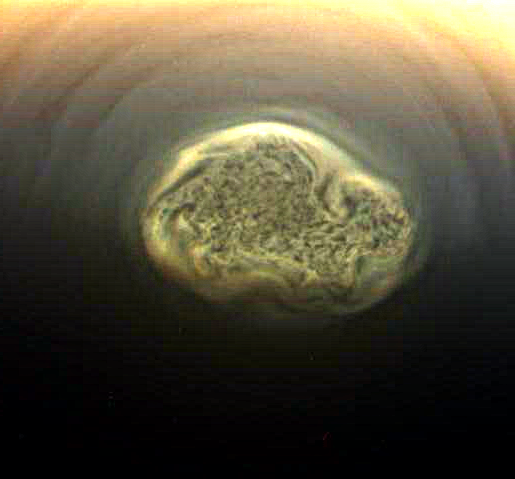Titan, one of Saturn’s moons, holds a major chemical ingredient that may actually let organisms live and exist on it, despite its freezing atmosphere.
Astronomers have noticed a molecule on Titan that could serve as the foundation to create cells, which in turn are the building blocks of life, The Verge reports. This means that the same molecule, and perhaps even some form of cellular life, might exist on this moon’s surface, too.
Scientists have long thought that Titan might have the compound, called vinyl cyanide. The Cassini probe from NASA has been exploring Saturn for 13 years, and found traces of the molecule while it was investigating Titan’s atmosphere, although exact measurements have not been conclusive.
Now, scientists are using the Atacama Large Millimeter Array, or ALMA, observatory in Chile to measure a definitive, large amount of vinyl cyanide on Titan’s upper atmosphere.
On Earth, the outermost layers of cells membranes that are made up of fatty molecules called lipids. However, lipids are unable to form on Titan due to the absence of liquid water. Titan’s temperature averages around -290 degrees Fahrenheit on the surface, making liquid water impossible. But it does have liquid methane lakes, which scientists believe could take the place of water to build other life forms.
In 2015, scientists used computer simulations to find out what possible life forms could be created in these methane lakes. They found vinyl cyanide to be the best candidate.
Titan also has a thick atmosphere that is mostly composed of nitrogen and compounds associated with life on Earth. The presence of vinyl cyanide is a good reason for scientists to keep exploring Saturn’s moon to see what else might be lying beneath the surface.
Martin Cordiner, an astrochemist at NASA’s Goddard Space Flight Center and co-author on the study, said, “This is a far cry from saying [life] definitely happens on Titan and these cells are involved in some kind of primitive life.” He explained,
But it gives us a starting point in that discussion. If there was going to be life in Titan’s oceans, then it’s plausible vinyl cyanide could be a component of that.
For now, the idea of cell membranes existing on Titan needs proof, and he only way to get that is to send another probe. Maureen Palmer, a fellow astrochemist and co-author, said, “There’s been some discussion of maybe sending a boat or something like that to Titan to observe what’s really going on in the lakes. That’d be really cool to see.”
The study was published in Science Advances.
























